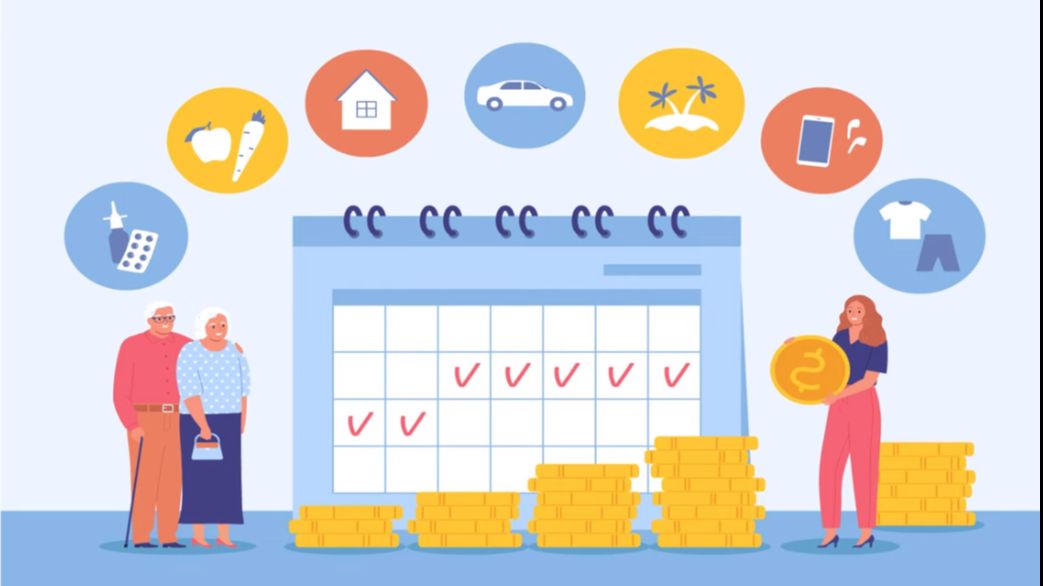Save money to achieve your desired financial goals and create financial security for the future. You will save a significant amount of money each month and have a clear understanding of your income and expenses, allowing you to assess whether your spending is reasonable or not.
Knowing how to manage money effectively will also greatly assist in your self-improvement journey, as well as your personal lifestyle, helping you become the best version of yourself in both work and life. Additionally, good money management will make you feel that life is simpler and easier. Many people will always have a reserve budget for the future, being more proactive when facing difficult financial issues that need to be resolved.
Over time, you will accumulate a substantial savings amount to serve your future life plans such as buying a car, buying a house, and many other investment opportunities that will come to you when your financial situation is stable and abundant. Moreover, there are two principles you need to remember when you want to spend effectively. You should spend less than the money you earn, because if you spend more than or equal to your current income, it is clear that you will have no money left to save for the future.
On the contrary, it can lead to a deficit or create additional debts later on; you must always have a big plan for the future. This principle will help you stay motivated to strive for earning money. Implementing effective money management methods will make spending and saving easier when you have plans in mind. The following article will suggest 10 effective money management methods.
1. You should start saving from small amounts every day
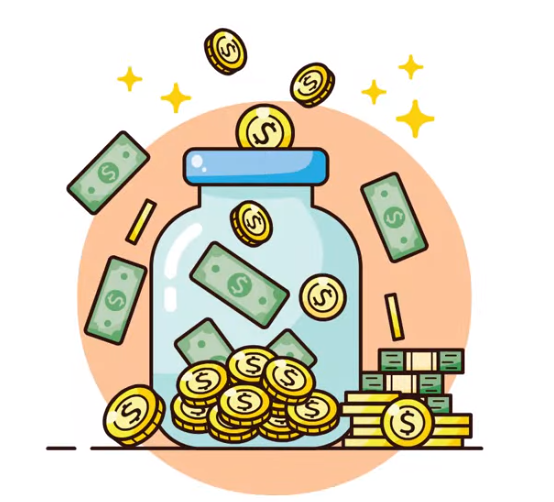
When you first start saving, it will be easier for you to get used to saving small amounts of money each day. By regularly managing the small amounts you save, they will increase over time, and gradually you will learn to live without worrying about that money. Andrea, a recognized consumer expert across the United States, recommends that you save weekly with small amounts. She also suggests saving online to enjoy higher interest rates; you should set up automatic transfers for those savings.
2. You can use free financial management and planning apps
In this high-tech era, every technological invention recognized by humans brings practical benefits to life. There are many effective money management methods favored by citizens in many countries around the world, one of which is using personal finance management apps. Currently, there are many personal expense management apps that can be directly installed on your phone for free. For example, Econs money and Lovever Misa are popular expense management apps trusted by many users. These software will help you track your income and expenses. This allows you to easily monitor your monthly expenses and assess whether your spending aligns with your intended budget.
3. You should create a short-term or long-term savings account
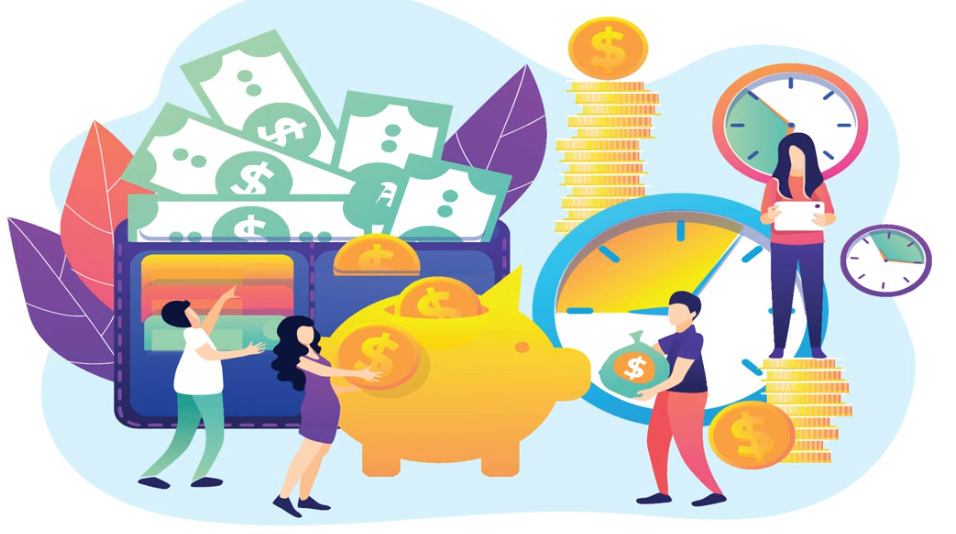
One of the criteria young people need to have a good savings amount is to create a long-term or short-term savings account. For example, in cases of daily living expenses, a short-term account will be the most suitable choice for you; using a short-term account will help you manage your finances and save your monthly salary better. Long-term savings accounts will be used for necessary future life purposes, such as marriage, buying a house, buying a car, having children, or starting a business. Therefore, all young people are encouraged to carefully consider when setting up a savings account.
4. You should proactively delete online credit card numbers and set a 48-hour rule for yourself
When you decide to buy an item, wait 48 hours before withdrawing that money to make the purchase. This method allows you to reconsider whether this purchase is truly necessary and whether you should buy it. Additionally, you should avoid using credit cards for online shopping; it is recommended to frequently shop at physical stores and pay in cash, which will give you more time to think about whether you really need the item, helping you make the most effective spending decisions.
5. You should be aware of your personal income and expenses
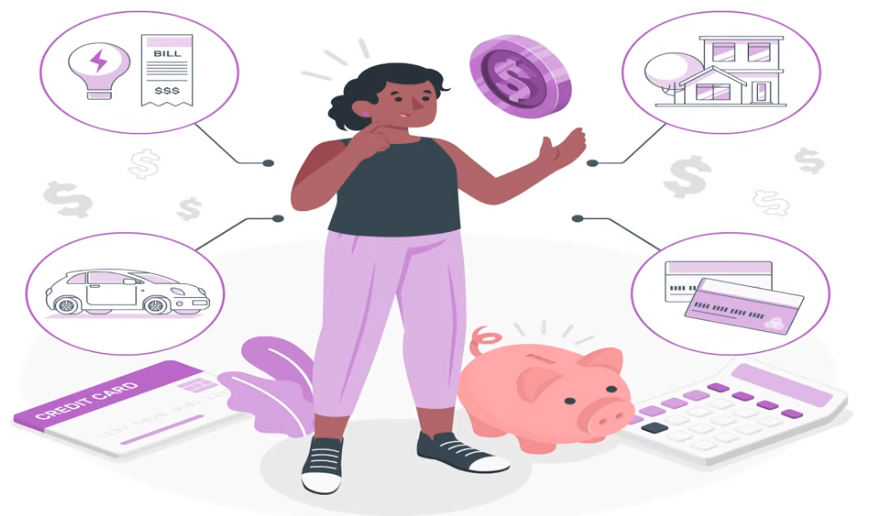
To manage personal finances effectively, you need to be aware of your monthly income and expenses. It is best to clearly separate which expenses are fixed each month and which are variable, similarly for income. Be a person who spends money wisely so that the money you work hard to earn each month is not wasted.
6. Regularly review credit card statements and bank accounts
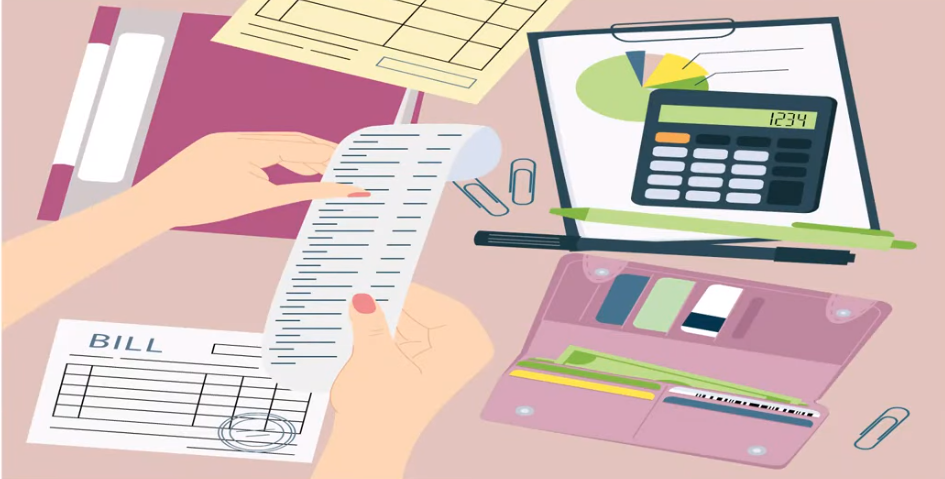
In modern society, shopping with just a swipe of a card can provide immediate psychological satisfaction. However, it can also lead to a loss of control over your spending. Therefore, it is encouraged to regularly review your credit card and bank account statements each month to become aware of whether your spending is reasonable or if there are any unnecessary personal expenses, allowing you to learn from your spending experiences for the next month.
7. You should set clear personal financial goals
You should apply the method of setting personal financial management goals to improve your monthly spending management. For example, if your monthly salary is 12 million VND, after receiving your salary at the beginning of the month, set a savings goal immediately. After deducting fixed monthly expenses, calculate how much is left and how much you will spend on miscellaneous items, along with the amount you will invest in yourself for the month. You will be able to estimate how much you can save in a month.
With the remaining amount, you should have a specific savings goal. Setting this financial management goal will help you have a clear path in your monthly spending, reducing the risk of overspending your available funds. Try setting a goal and see if this effective money management approach is truly beneficial for you.
8. Cut unnecessary shopping expenses each month

Each month, we certainly spend money on things that are truly unnecessary; this excessive shopping behavior often appears in women's spending habits, as they are easily attracted by promotions and discounts, choosing to buy items simply because they are cheap, even if they are not truly needed. To address this issue, you should allocate a certain amount each month for this reason. However, you must set a purchasing limit within the amount you allocate; this way, you can satisfy your passion while maintaining stable and manageable finances.
9. You should stay away from debts
Bad debts can negatively impact the credit of an individual or organization and can pose risks for future financial transactions. Avoiding debt is part of creating a secure financial future. If you want to manage money effectively, you should truly stay away from unnecessary debts, meaning debts that do not contribute to your personal career development. For example, unreasonable spending debts like credit card debt due to overspending, or debts incurred to satisfy personal emotional demands without yielding any returns, except for causing you to fall behind compared to your peers.

While you are indulging in shopping, traveling, and dining with borrowed money, your friends may have a stable savings amount, and they have no debts at all. When it comes time to repay your debts, you will struggle and find it difficult because you have no money to cover the repayments. This situation can persist for a while, and you may not have any way to stabilize your finances in the short term.
Therefore, it is encouraged that you stay away from unnecessary debts; be someone who manages finances wisely and saves money, which will help you avoid suffering in the future. However, if you borrow money to start a business or implement a plan that generates income, we encourage you to take on that debt.
10. You should build an emergency fund
Most Vietnamese people rarely establish any type of emergency savings fund. Therefore, even small unexpected expenses can lead them into debt. To prevent this from happening to you, build an emergency savings fund by reviewing your spending diary to see how much money you need each month to pay your bills. Save on unnecessary expenses, so each month you will have a savings amount and an emergency fund. This will give you a sense of security, providing a financial cushion to rely on if needed.
It may take some time to accumulate an emergency fund, but in the long run, it will be a significant amount that helps you solve many issues. Managing money is one of the first steps to stabilizing your finances; when you do this well, you will be able to focus on other future goals. Start planning your money management today.
